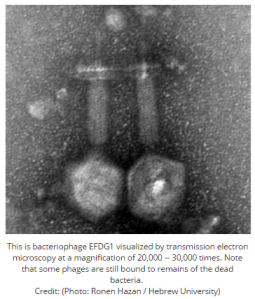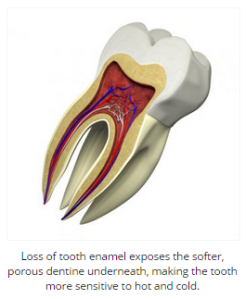 Scientists turn the tables on drug-resistant bacteria by infecting them with bacteriophages (bacterial viruses)
Scientists turn the tables on drug-resistant bacteria by infecting them with bacteriophages (bacterial viruses)
Every year, drug-resistant infections kill more than 50,000 people across Europe and the United States, and hundreds of thousands more around the world. According to the Review on Antimicrobial Resistance commissioned by the UK Prime Minister, failing to address the growing problem of drug-resistant infections could cause 10 million deaths a year and cost up to $100 trillion USD by 2050. (See Antimicrobial Resistance: Tackling a Crisis for the Health and Wealth of Nations)Now, researchers from the Hebrew University of Jerusalem’s Faculty of Dental Medicine propose a way to turn the tables on harmful bacteria that infect humans, by infecting them with tiny viruses called bacteriophages. In a strange twist, one such virus, cultivated from Jerusalem sewage, may help prevent infections following dental procedures.Just a few decades ago, antibiotics were considered wonder drugs. Ironically, because they worked so well, they were used too often, leading to the rise of drug-resistant bacteria. These untreatable pathogens evolved mutations enabling them to resist the antibiotics that doctors prescribe to fight them.One such pathogen is Enterococcus faecalis, a bacterium inhabiting the gastrointestinal tracts of humans. This life-threatening pathogen causes diseases ranging fromendocarditis (a potentially fatal heart infection) to bacteremia (harmful bacteria in the bloodstream), as well urinary tract infection, meningitis, and post-treatment root canal infections.
Read the rest of the article at http://www.medicalnewstoday.com/releases/289628.php.
